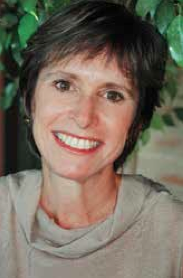The year was 1982 and the 12-kilometer run for Soviet Jewry drew thousands of people who cared about their plight. Dressed proudly in my “Free Soviet Jews!” T-shirt and armed with enough water to fill a small swimming pool, I sprinted enthusiastically for the first half-mile or so, waving to friends along the sidelines like a notable in a parade. But it wasn’t long before I noticed my breath quickening, my knees hurting and the sad fact that I was falling far behind the faster, more experienced runners, who sped past me without even breaking a sweat.
My husband and I completed the race together in just under an hour. We may have been new at the running game, but the fact we finished made us happy and proud. That race taught us Rule Number One for Running: What you lack in experience and speed, you can always make up in determination and energy bars.
A race represents different things to different people. For some, it is the possibility of excelling at a sport and surpassing others; for others, it is the challenge of beating a prior personal record or running on a more demanding course. For my husband and me, that morning was a chance to make a powerful political statement about the urgent need to free the Jews in Russia who were being persecuted for their religious beliefs and prohibited from leaving the country. It was a chance for us to let others know that we cared about their freedom because we understood how precious our own freedom was – living openly as Jews in America.
Freedom to be Jewish in America is a right guaranteed to us by the First Amendment of the United States Constitution. It secures the right to live as Jews without government interference – to practice our faith without fear of arrest, confiscation of property or personal tyranny of spirit. When I was growing up, I learned about the Constitution in school but never connected it to the fact that my family could go to synagogue or celebrate Passover without fear of government interference or reprisal. In fact, since we didn’t engage in many Jewish customs, I never really thought about the freedom I had to be Jewish – at all.
In our home, my father’s idea of keeping kosher was not putting bacon on his cheeseburger. Between my father’s reluctance to practice Judaism and my mother’s lack of religious training, we muddled through events like the Passover seder, where every other page in our Maxwell House Haggadah was marked “skip.” (I was in my teens before I realized that “skip” wasn’t some long lost cousin but rather a directive to shorten the service!)
Yet even though we didn’t keep a traditionally observant home, many things in our house were Jewish to the core. Like the food in our refrigerator – sour dill pickles in jars as large as paint cans dripped pickle juice onto containers of stuffed cabbage and noodle kugel with raisins. When my friends came over, they were offered seltzer and mandel bread instead of milk and vanilla wafers.
Walking through our home, you learned something about my parents that spoke volumes about their sense of being Jewish. Books about world history, art, literature, philosophy, finance and religion filled the shelves. My parents associated being Jewish with a love of learning and an unrelenting insistence that their children get a quality education.
Added to that was the way my parents viewed philanthropy. No gift was too much when they saw a need, but it was always made anonymously. My father refused to let others know the amount he pledged to any campaign, yet he was the first to stand up at a synagogue meeting in October of 1973 to commit his financial support to Israel during the Six Day War, encouraging many of his reluctant friends to do the same.
What I took away from my upbringing was not the ability to recite specific blessings, but a foundation upon which I have built a Jewish life and home with my own family. My beginnings may have been meager by some standards, but they taught me a very important lesson. That being Jewish is not like being in a race. We all begin at different starting points; we all run on different paths and confront challenges along the way. It’s not so important where we begin but that we begin – wherever the place we find ourselves and at whatever age or stage in our life. Being Jewish is not about getting to the finish line first or faster or with more medals than other runners. Being Jewish is about making the journey, about deciding to find the path and move closer – to ourselves, our family, our traditions, our culture, our ethics, our history and our people. And when we begin to do so, we can appreciate our unique destiny.
As the noted Jewish scholar and philosopher Franz Roszenweig once said: “For the modern Jew, observance is no longer a matter of the all or the nothing. One only has to start. Nobody can tell where this beginning will lead.”
Amy Hirshberg Lederman (amyhirshberglederman.com) is an award-winning author and syndicated columnist, international speaker, Jewish educator and attorney. Her stories appear in the Chicken Soup series and her book One God, Many Paths: Finding Meaning and Inspiration in Jewish Teachings won the 2009 Best Book Award from the Arizona Book Publishing Association.






